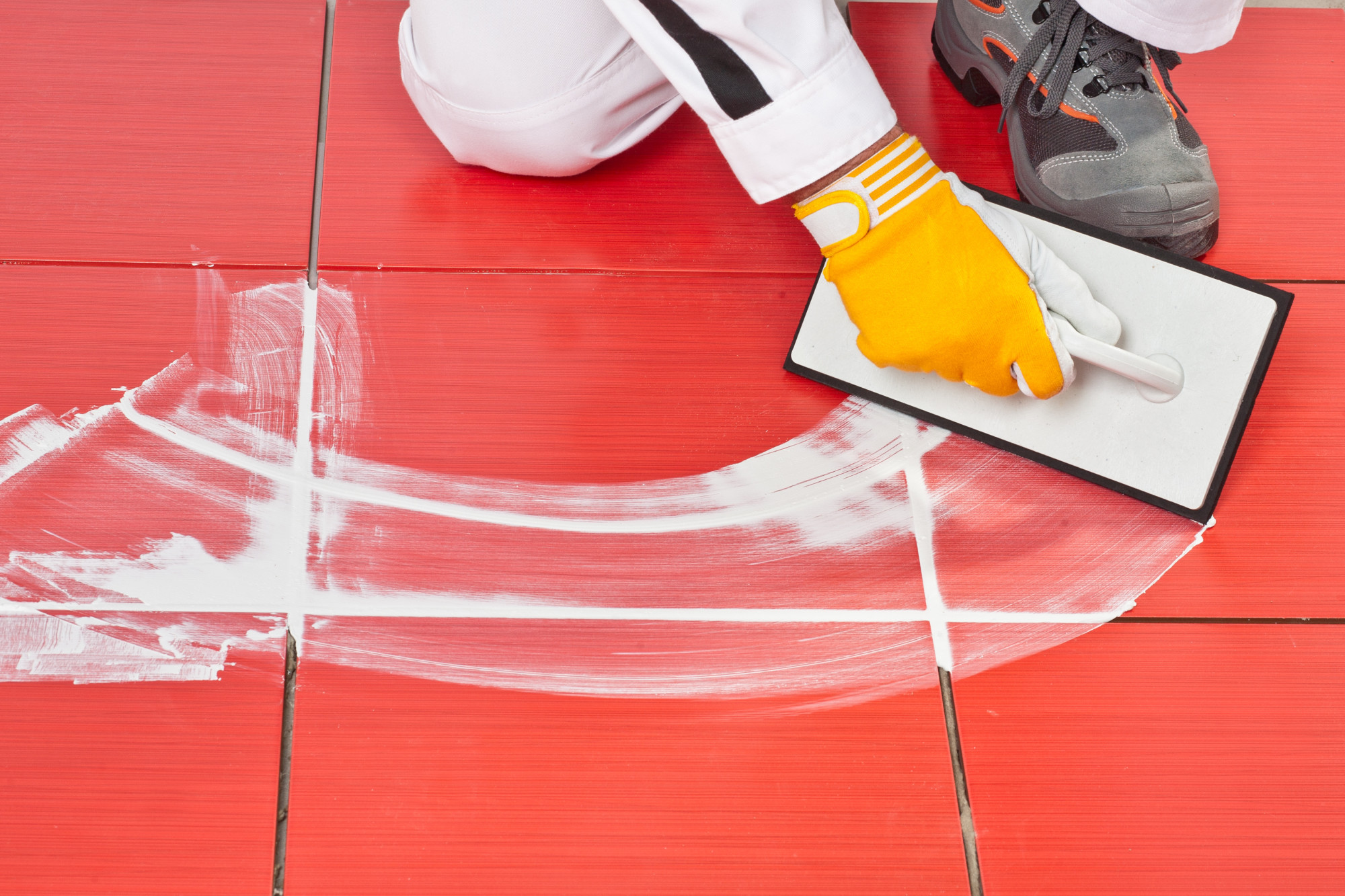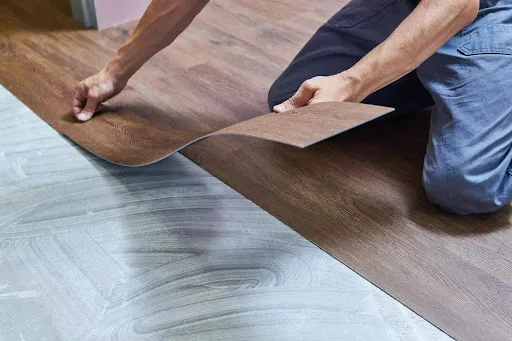Tile floors have long been a popular surface for home improvement projects and new builds. In fact, they’re one of the top materials used in flooring. People love how they look, how they’re easy to clean, and how durable they are.
But there’s one thing that many people don’t realize: beautiful tile floors require grout upkeep. If you live in a humid climate or your home experiences a lot of moisture due to an HVAC system, you should choose a grout that’s more humidity resistant.
While it’s not necessary to replace an entire contractor’s bad job, learning the types of grout can save you some time and money down the road when it comes time to small repairs.
Here’s what you should know about the different types of grout.
Table of Contents
Cementitious Grout
Cementitious grout is a type of grout composed of Portland cement, sand, and water. This type of grout is generally used for both residential and commercial applications. It is generally easier to apply since it is pre-mixed and dries at a faster rate than other types of grout.
In addition, it is highly durable and has strong adhesive properties. It is also resistant to water, mold, mildew, and rot, making it an ideal product in wet or moist environments.
Cementitious grout is an ideal choice for deep joints or thin voids where cracks may occur due to movement. It also provides a professional look to any surface and can be color modified to match preexisting tile or stone.
Sanded Grout
Sanded grout is a type of mortar used for filling gaps between tiles and masonry, vinyl, and other hard surfaces. It is composed of cement, sand, and additives to improve workability and reduce moisture in the environment. It is an economical choice for those looking for a cost-effective solution for filling gaps.
The sanded grout is less likely to crack, shrink and warp over time, and is also better at resisting water penetration and mold growth as it has grit and texture. It also has a longer work life and is recommended for installation with tiles over 8 inches in size. For areas where a large amount of movement is expected, it is the recommended type of grout.
However, when compared to non-sanded grout, it is more rigid and less flexible. Additionally, it is more difficult to apply as extra mixing, and more water may be necessary.
Unsanded Grout
It usually has a powdered additive to help it bond better to the tiles or stones being grouted. Unlike sanded grout, it’s softer and less granular, making it easier to wipe away any excess new grout. It’s also less likely to collect dirt, making it suitable for grouting in seldom-used areas, such as showers and other wet locations.
Since the grout is less granular, it’s less likely to chip away over time, leaving the grout lines clean and undamaged. It is often used when grouting smaller tiles, as it can get into the spaces better than sanded grout.
It can also be used in more intricate designs, as it doesn’t require as much pressure to push down into the tiles. It can be either pre-mixed or regular mix and is available in various colors, making it a good choice for many different grouting applications.
Furan Grout
It is a product derived from polyurethane and vinyl-ester resins and can withstand temperatures up to 200°C. This type of grout provides a long-lasting seal and is resistant to chemicals and water. Furan Grout is also resistant to abrasion and can survive high-pressure steam.
When applied to boilers, it helps reduce heat loss and is also resistant to shock and vibration. It has been used for decades in many industrial applications, making it an extremely reliable and long-lasting option.
It is also non-toxic and does not contain hazardous substances, making it safer for its users. It is easy to install and can be applied with minimal effort. Furan Grout is an excellent choice for ensuring a secure and resilient seal in industrial ovens and boilers.
Polymer Cement Grout
Grout is an extremely versatile product and is used in a range of applications. Polymer cement grout is a special type of grout that is a pre-mixed material.
It has high strength and excellent adhesion properties. This makes it suitable for a variety of applications, including countertops, walls, showers, and other tiled flooring. This type of grout requires very little or no sealing and is available in environmental friendly options.
Tile and grout cleaning service often opt for this type of grout because of its easy maintenance. It is essential to follow the instructions of the manufacturer when using this product and to keep it sealed. Careful maintenance and proper installation is necessary for a longer-lasting and better-looking outcome.
Epoxy Grout
It is one of the strongest and most durable grouts available and can withstand heavy traffic and frequent cleaning. Epoxy grout is highly resistant to water and will not shrink, crack, chip, or break when exposed to moisture. Epoxy grout can also offer a seamless finish, giving tile and stone surfaces a clean, contemporary look.
It is often used in wet areas, like bathrooms and showers, because it can withstand moisture and is durable. Epoxy grout does not need to be sealed, and it is the most stain-resistant type of grout. It is also easy to clean and does not need to be sealed, waxed, or treated, making it ideal for hard-to-clean areas.
Learn the Different Types of Grout for Your Home
Grout has been used for centuries to seal, protect, and embellish tiles and other surfaces. The type of grout you choose will depend on the project, use, and overall aesthetic you’re trying to create.
With knowledge of the advantages and disadvantages of the different types of grout and preventative maintenance, installing a perfect finish is possible. Take the time to choose the right grout for your project, and start building today!
Was this article helpful? For more articles like this one, be sure to check out the rest of our site!





